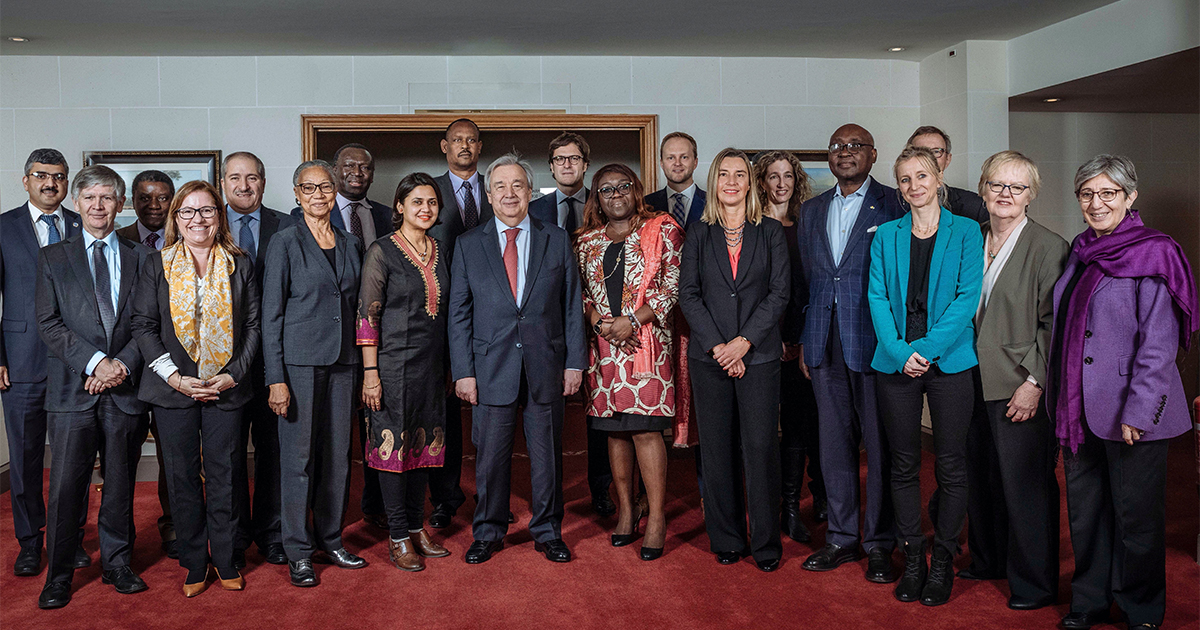The Global Engagement Network on Internal Displacement in sub-Saharan Africa (GENIDA), which forms part of the global Interdisciplinary Network on Displacement, Conflict and Protection (INDCaP), makes the following submission in response to the Call for Inputs disseminated by the UN High-Level Panel (HLP) in March 2020.
The network
The INDCaP project promotes research on internal displacement in affected countries in Africa, Latin America and the Middle East. It aims to: (i) draw together researchers in each region to develop a robust research community on internal displacement; (ii) build the capacity of such researchers in academia, NGOs and IDP communities; and (iii) promote cutting-edge research from different disciplines to shape context-sensitive solutions to displacement challenges.
The GENIDA network seeks specifically to advance knowledge on internal displacement in sub-Saharan Africa through rigorous engagements and to bridge existing gaps in research on internal displacement in the continent.
It is led by Dr Romola Adeola (University of Pretoria, SouthAfrica), in collaboration with the Refugee Law Initiative, University of London, United Kingdom.
Funding support for these projects is generously provided by the UK Research & Innovation.
Project references: AH/T005351/1 (INDCaP); EP/T003227/1 (GENIDA).
Global Challenges Research Fund
This submission reflects the input of the following GENIDA members: Dr Walter Samah
(AMISOM, Somalia); Dr Eniola Cadmus (University of Ibadan, Nigeria); Mr David Onen Ongwech
(Refugee Law Project, Uganda) and Dr Romola Adeola (University of Pretoria, South Africa).
Scope of the submission
This submission is addressed principally towards the following questions raised by the Call:
- The key issues, problems or imperative which, as you see it, should be prioritized by the Panel in its analysis of the crisis of internal displacement today and how prevention, response at large and solutions can be effectively advanced.
- Focusing on solutions, your perspectives on what has led to many situations of internal displacement remaining stalled for many years and how effective solutions can be catalyzed, driven forward and supported.
- Critical issues or questions as you see them in respect to data and evidence in the response to internal displacement including gaps, shortcomings and challenges in approaches or implementation and how these can be addressed.
Key challenges, possible solutions and key recommendations in Africa
The following key challenges, possible solutions and recommendations are made.
Key challenges:
There are significant issues that need attention in the internal displacement discourse in Africa. While there is a rich normative framework at both regional and national levels to respond to issues relating to internal displacement, there are specific issues that require priority action.
First is IDP participation in peace processes in order to secure their protection and assistance from a bottom-up approach. While the concerted efforts of states and other stakeholders, at various levels of governance are laudable in addressing the issue of internal displacement, there is an evident challenge in the process – which is the extent to which IDPs are meaningfully engaged.
Second, there is the question of protection of IDPs in situations of pandemics, an issue that has been brought to the fore by the global COVID-19 pandemic. While there is general vulnerability in situations of pandemics, it is heightened among IDP especially those living in camps and host communities where there is no adequate capacity to respond to the challenge.
A third priority area is mental health of IDPs, particularly in protracted situations in Africa. While the physical health of IDPs deserves to given utmost attention, there is also need for more concerted focus on providing long-term psychosocial support for displaced persons, particularly in conflict contexts within the optics of sustainable solutions.
Possible solutions:
In addressing the challenge of participation of IDPs in peace processes, it is crucial that the HLP develops guidance on the modalities for their incorporation within national contexts. In the context pandemics, it is important that the HLP develops practical guidance on the protection of IDPs in such situations which may serve as reference in Africa. With respect to mental health of IDPs, it is crucial that the HLP meaningfully engage with states to prioritize long-term psychosocial support for IDPs.
Key Recommendations:
- Develop guidance on incorporating IDPs in peace processes.
- Provide practice guidance on the provision of support for IDPs in pandemic situations.
- Engage with states to prioritize long-term psychosocial support for IDPs.
